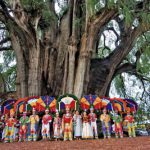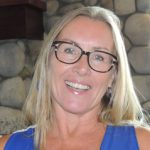During Jesuit Theology class at Loyola High School one warm afternoon in 1947, Father Duggins’s monotonous voice was mesmerizing the ninth-grade class of fifty boys into a somnolent state. Rays from the afternoon sun slanted through the trees and into the windows. There was a warm hum in the air. The teacher was lost in epistemology putting notes on the chalkboard with his back to the class. I decided, “I need not stay here. He wouldn’t know or miss me if I absented myself.”
I stood, stretched, and silently shuffled towards the front classroom door just behind the absorbed cleric. I quietly closed the classroom door behind me and I was out. I had the whole world to explore and a full afternoon without limits to do it. Freed from the high school building, I walked north to Pico Boulevard to start my hitchhiking commute northeast to the sanctuary of Pasadena.
The initial part of my trip would be on surface streets: East on Pico, North on Figueroa to the signal at Sunset, and then onto the Arroyo Seco, the first freeway in L. A., direct to the southwest corner of Pasadena. I looked forward to an enjoyable trip and the drivers who would pick me up.
I arrived at a sunlit, charming, secluded greenspace with a multitude of lawn bowling tracks populated by lively bowlers. I wondered about them. Tall, thin, all under fifty years of age—my dad’s age if he hadn’t died, victim of the hypertension of the business wars. I wondered how they afforded the time away from work to do this. I wondered what they found satisfying in spending their time playing here. Could it be that they did not have to work? If they did work, their travail was the moving of large amounts of old money by telephone to receive five basis points more.
The bright sunshine, trees, green grass, and distraction of miniscule, white balls rolled along the strips of manicured grass was silently beautiful. I relaxed completely and moved into a state of meditation. I had no worries. I certainly wasn’t a truant but a researcher looking at another culture as part of my street education. This was not a place where a truant officer would be expected to search for miscreants like at pool hall or bowling alley. Not this sanctuary for the young landed aristocracy of this corner of Pasadena.
How did one become a member of this genteel class, wearing unbuttoned, oxford-cloth shirt, without necktie, cuffed trousers, penny loafers, and free in the afternoon for such a trivial pursuit? How were they different from me?
I had seen where our enigmatic God had smiled on a place and a people of favor. As F. Scott Fitzgerald said through Gatsby, “. . . the truly rich are different from you and me.”
I knew that I must leave this idyllic episode and make my way home to our rented house. Mom would still be at work. The fridge would be empty. There would only be test patterns on our black and white television. As always, I was eager to start hitchhiking and the adventure of hearing the story of whoever picked me up and telling him my story. That would open my life up to the other world that I had met on previous trips with all types of humanity.
I knew I must become rich. Not being born a “scion,’ I might never be truly rich, but I would become quietly rich by picturing myself as a “Rich Man.” And I did.
For more information about Lake Chapala visit: www.chapala.com
- Tough Guy - April 29, 2023
- My Imaginary Friend - January 28, 2023
- Truancy - March 31, 2022










